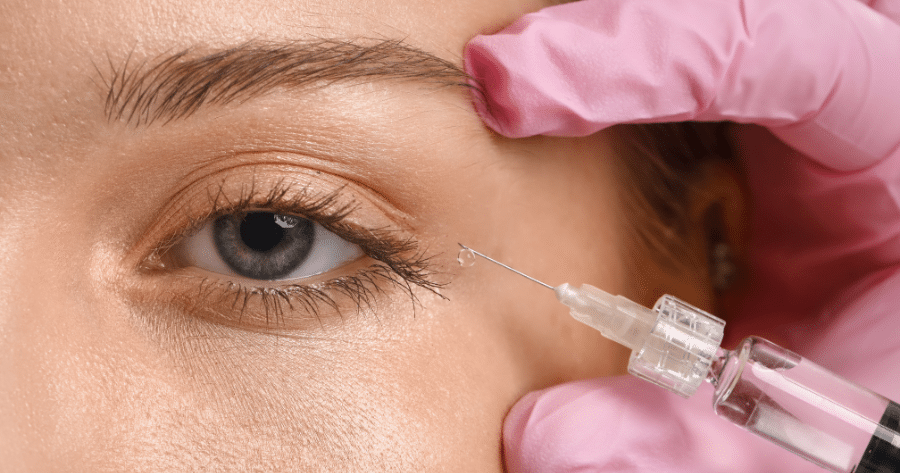Anti-VEGF Injections
Anti-VEGF Injections Specialist in Georgia

Expert Retinopathy and Macular Edema Treatment in Georgia
Diabetes can silently impact the eyes long before symptoms appear. Among the most serious complications is diabetic retinopathy, a progressive condition that damages the retina’s blood vessels. One of the most effective treatments available today is intravitreal injection therapy using anti-VEGF medications. These injections help manage retinal swelling and prevent abnormal blood vessel growth—two significant threats to sight in diabetic patients.
Anti-VEGF therapy has become a standard of care for diabetic macular edema (DME) and proliferative diabetic retinopathy (PDR). If left untreated, these conditions can lead to vision loss or blindness. By targeting a specific protein in the eye called vascular endothelial growth factor (VEGF), anti-VEGF medications reduce leakage, slow vessel growth, and stabilize or even improve vision in many patients.
Understanding How Anti-VEGF Injections Work
In individuals with diabetic eye disease, elevated VEGF levels contribute to the formation of abnormal, fragile blood vessels that can bleed or leak fluid into the retina. This leads to swelling, blurred central vision, and retinal damage. Anti-VEGF medications block this protein, helping restore the normal function of retinal tissues and reducing fluid accumulation in the macula.
These medications are administered directly into the eye using a fine needle in a sterile clinical setting. Though an injection may sound intimidating, the procedure is quick, typically well tolerated, and performed with numbing drops to ensure patient comfort. Treatment intervals vary by diagnosis and disease progression but often start with monthly injections followed by a gradual reduction in frequency once the condition stabilizes.

When Anti-VEGF Therapy Is Recommended
This treatment is typically recommended for patients experiencing vision-threatening complications from diabetic retinopathy or diabetic macular edema. It is especially effective in slowing the progression of PDR and can even reverse some signs of DME, offering a path toward improved vision and disease control.
In some cases, anti-VEGF injections are combined with other treatments like laser therapy or corticosteroids, depending on how the disease responds. A thorough evaluation using advanced imaging—such as optical coherence tomography (OCT) and fluorescein angiography—helps the retina specialist determine the most effective treatment plan tailored to the individual’s unique needs.
Personalized Eye Care for Diabetic Patients
Each patient’s experience with diabetic eye disease is different. The number of injections needed, the pace of improvement, and the stability of vision over time vary based on overall health, blood sugar control, and the extent of retinal damage. Close follow-up is essential. Regular monitoring ensures timely intervention and helps maintain the best possible visual outcome.
Patients can maintain an active lifestyle through compassionate care and meticulous follow-through without fearing unexpected vision decline. Education and communication are central to the process, and patients are guided through every step, from understanding their diagnosis to making informed choices about treatment.

Diabetic Eye Disease Specialists Serving West Georgia
Diabetic eye conditions require vigilant, proactive care. Anti-VEGF injection therapy is a powerful tool in protecting vision, but early detection remains key. If you’ve been diagnosed with diabetes and haven’t had a recent eye exam, or if you’re experiencing blurred vision, floaters, or dark spots in your sight, it’s time to seek specialized care.
Serving patients in Villa Rica, Douglasville, Bremen, and Carrollton, Georgia Vision Institute provides advanced retinal treatments designed to preserve and restore vision. With a dedicated team and access to the latest therapeutic options, we are committed to helping you see now and in the future.
Schedule your diabetic eye evaluation today and take a step toward safeguarding your vision.